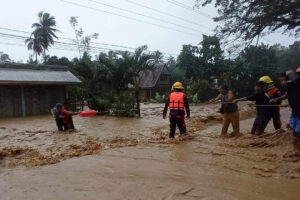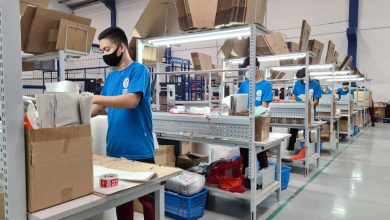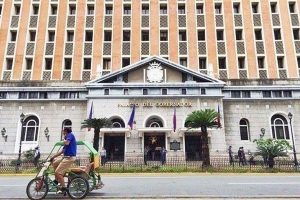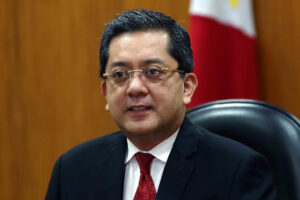Brooke’s Point fisherfolk say mining operations killing their livelihood

THE LIVELIHOOD of at least 100 families, mostly fisherholk, in the town of Brooke’s Point in Palawan have been affected by mining operations, according to a community leader.
“The fishermen who depend on the sea lost their jobs. They were banned by the mining company in the area where a causeway was built as they said they have applied for it,” Job Z. Lagrada, a resident and community leader from Brooke’s Point, said in Filipino via Messenger call.
He also said that floodwater triggered by rains from a low-pressure area in January came with laterite that drenched the homes and livelihood of the residents. Laterite is a reddish soil of aluminum ore, which he claimed came from the mining operations.
“It was added up to the water of the people and gradually became muddier. This will start to weaken the income of the community, especially the fishermen in the upcoming years,” said Mr. Lagrada.
On Friday, Brooke’s Point local government officials and residents called on the Department of Environment and Natural Resources (DENR) to issue a cease-and-desist order against Ipilan Nickel Corp. (INC), citing that it does not have a renewed mayor’s permit.
Mr. Lagrada also said that the mining firm did not conduct a public consultation for the “extended application” of its expired mineral production sharing agreement (MPSA).
INC, in a statement on Thursday, said the DENR has clarified that their MPSA did not expire and was instead amended to comply with Republic Act No. 7942 or the Philippine Mining Act of 1995.
The company also claimed that they have already “submitted the necessary documents and complied with all laws and regulations” for the mayor’s permit renewal.
Leon Dulce, campaign support and linkages coordinator of Legal Rights and Natural Resources, said via e-mail that “mining projects should be conscious of how they can affect all resource-dependent communities not only in their direct impact areas but also along the watershed where the impacts can flow.”
“These include indigenous peoples, small farmers and fisherfolk, and other residents, other economic activities such as agriculture and tourism, and the public authorities that represent these stakeholders,” he said. — Sheldeen Joy Talavera




